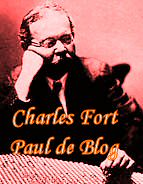Tuesday, July 20, 2004
LUCRETIUS WINDOW
Andrew Masterson
"Even if I new nothing of atoms, I would venture to assert on the evidence of the celestial phenomena themselves that the universe was certainly not created for us by divine power. It may surprise you to discover that these are not the words of Peter Costello. They were written, in fact; way back when the Virgin Mary no more than a twinkle in her mother’s eye, by a Roman philosopher and scientist named Lucretius (Circa 100-55 BCB).
Luke, as he most certainly wasn't known to his mates, studied other philosophers such as Epicurus and Democritus, and like them, concluded the world was essentially explicable. Accepting the mysterious by pointing to the unknowable caprices of gods. He felt, was just plain silly. Needless to say, when the youthful Christian church reached its ascendancy in the centuries after his death, Lucretius was condemned as a madman, and his main work, a hefty document called On The Nature of the Universe, suppressed.
This was a great pity, his thoughts led him not merely to refreshingly impious positions, but also remarkably close to modern conceptions to both Newtonian and quantum physics. Had subsequent generations had the opportunity to study and build on his writing as much as they were able to concentrate on the New Testament, the world today might be a very different place."
Andrew Masterson – “If only we worshipped the indifferent god, Kenneth” - This Life – The Age 20 July 2004.
|
Andrew Masterson
"Even if I new nothing of atoms, I would venture to assert on the evidence of the celestial phenomena themselves that the universe was certainly not created for us by divine power. It may surprise you to discover that these are not the words of Peter Costello. They were written, in fact; way back when the Virgin Mary no more than a twinkle in her mother’s eye, by a Roman philosopher and scientist named Lucretius (Circa 100-55 BCB).
Luke, as he most certainly wasn't known to his mates, studied other philosophers such as Epicurus and Democritus, and like them, concluded the world was essentially explicable. Accepting the mysterious by pointing to the unknowable caprices of gods. He felt, was just plain silly. Needless to say, when the youthful Christian church reached its ascendancy in the centuries after his death, Lucretius was condemned as a madman, and his main work, a hefty document called On The Nature of the Universe, suppressed.
This was a great pity, his thoughts led him not merely to refreshingly impious positions, but also remarkably close to modern conceptions to both Newtonian and quantum physics. Had subsequent generations had the opportunity to study and build on his writing as much as they were able to concentrate on the New Testament, the world today might be a very different place."
Andrew Masterson – “If only we worshipped the indifferent god, Kenneth” - This Life – The Age 20 July 2004.
|

